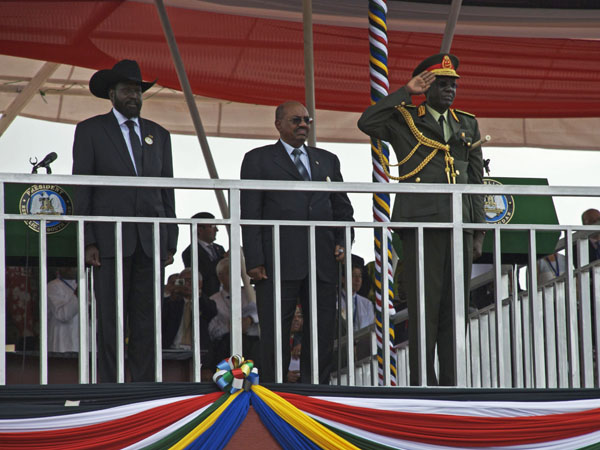
Within the last two weeks, signs of progress have emerged from the two Sudans. First, on March 13, Khartoum and Juba initialed two agreements concerning citizenship and border management issues and agreed to hold a bilateral summit between Presidents Bashir and Kiir under a renewed spirit of mutual cooperation. President Bashir has since accepted an invitation from his southern counterpart to travel to Juba on April 3 for the summit. Then, on March 20, the government of Sudan announced that it had referred to a technical committee its decision as to whether it will sign the United Nations-African Union-League of Arab States Tripartite Proposal on aid delivery to the Sudanese states of South Kordofan and Blue Nile. The committee is expected to release a report on the proposal in the coming days.
Such signs of progress, in particular within the context of the negotiations between Khartoum and Juba, while noteworthy, should be met with cautious optimism and vigilance by the international community. Diplomatic pressure, at the highest levels, should now be exerted on both parties, in particular, Khartoum, to ensure that the proposed April 3 summit moves forward in a timely and constructive manner. Public statements, such as the one issued late last week by the U.S. State Department, encouraging Khartoum and Juba to “prepare in good faith for the summit planned for early April,” are well placed and should be amplified in number and sternness of message as the proposed date for the summit approaches. As well, influential international actors, among them the U.S., China, the U.K., Norway, and Ethiopia, should apply concerted diplomatic pressure on the two parties to help ensure that the April summit occurs. Moreover, the two sides must arrive prepared to negotiate, in a spirit of cooperation and goodwill, a holistic agreement concerning the key outstanding issues, among them, transitional financial arrangements—inclusive of oil—border management, and the final status of the Abyei area, with the ultimate goal of creating two mutually viable states.
The international community should also emphasize that the agenda of the Bashir-Kiir summit should contemplate a discussion of extending the April 8 deadline by which all ethnic southerners living in Sudan must register themselves with Khartoum as foreigners or leave. The International Organization for Migration, or IOM, has said it is “totally impossible” to relocate to South Sudan all ethnic southerners currently in the North—estimated to be around 700,000 people—by the deadline.
Khartoum’s overtures to review the Tripartite Proposal should be met with even further skepticism. The government of Sudan is adept at delay tactics. While it is perhaps encouraging that the regime continues to engage in negotiations concerning access to South Kordofan and Blue Nile, its recent punting of the proposal to a committee could be an indication of the regime’s drawn out refusal to accept the initiative. Given the situation on the ground, namely the approaching rainy season and the pending risk of mass starvation, the international community must closely watch the government of Sudan’s actions vis-à-vis the proposal in the coming days, while simultaneously contemplating its next steps if—or, perhaps more appropriately, when—Khartoum rejects the proposal, either patently or through further delay tactics.
Ultimately, the international community must proceed with vigilance. Neither Juba nor Khartoum should be allowed to hide behind delays and unilateral actions to inhibit progress in North-South negotiations. The time has come for the international community to resoundingly and in a unified voice communicate to the government of Sudan that its continued refusal to permit international humanitarian aid to reach populations in South Kordofan and Blue Nile is categorically unacceptable and cannot continue.
Photo: Presidents Kiir and Bashir at South Sudan's independence ceremony in Juba, July 2011 (Enough / Laura Heaton)

